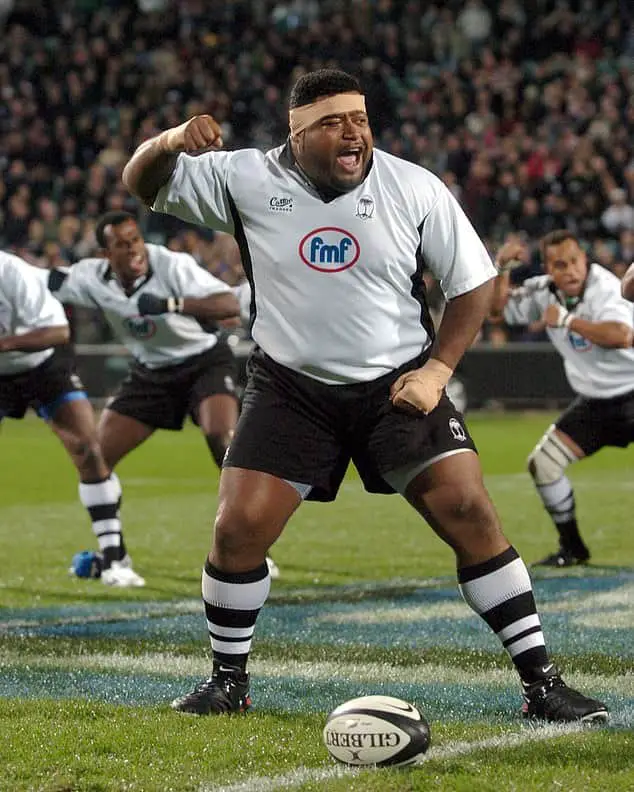
Sports like rugby that involve speed, explosiveness and athleticism often favor young athletes. Look at the NFL where the average retirement age is just 27. However, is rugby the same? Let’s find out!
What age do rugby players retire?
Rugby players retire from international competition between the ages of 27 and 32 and retire from professional club level between the ages of 30 and 38. Outside backs tend to retire the earliest while tight 5 forwards retire the latest.

Despite all the advances in sports medicine and off field treatments rugby players still find their careers at a crossroad once they reach their 30s. It appears that while current older players are performing at a much higher level than older players from past generations the increased intensity of the game is taking a toll on the body that even fancy new health treatments can’t completely alleviate.
Older rugby players in their 30s are also having to battle with thousands and thousands of young hungry rugby players who are fighting for lucrative contracts and are benefiting from improved training systems and academies. Eventually the old silverback loses the will and ability to keep the younger gorillas from knocking them off their perch.
It may not be just physical wear and tear that is causing rugby players to hang their boots up in their 30s, it also could be mental fatigue. There is a theory that humans can only really operate at a world class level for 7 years before they start plateauing and declining. This is due to the mental strain it takes to focus and dedicate so much of your time to a particular pursuit.
This theory does align with rugby’s retirement ages as many players start playing professionally in their early 20s and then start declining in their late 20s before exiting the game in their 30s.
Why Do Rugby Outside Backs Retire Earlier Than Forwards?
Rugby outside backs retire earlier than forwards because they require more speed which declines sharply with age. Forwards also have more specialized skills which take time to develop, limiting the amount of available young replacements.

An interesting aspect of rugby is that retirement age is slightly position specific. The players that tend to play the longest are front row forwards (props & hookers) and locks. You will often find these rugby athletes playing deep into their 30s.
The reason that tight 5 rugby forwards play the longest include:
Limited talent pool – The average lock is 6ft6 and weighs 116kg, while the average prop is 6ft1 and weighs 120kg. I don’t know about you but there aren’t many people that size where I live. Rugby teams have a hard time finding replacements for tight 5 forwards because there are so few people who are that size, play rugby and have professional level skill.
Specialised skills – Rugby forwards possess skills that years and years to develop things such as scrummaging, lineout throws, lineout jumping, mauling and rucking. With lineouts and scrums being such an important aspect of rugby, coaches are hesitant to throw a young hooker into a professional match even if he is a physical beast when they have an old hooker who has won more scrums and lineouts than he can count.
Strength is more important than speed – Have you heard the term old man strength? Well old rugby forwards have that in abundance. Strength tends to be the last athletic attribute that athletes lose and there is evidence that most men’s strength actually peaks in their 30s. As rugby forwards particularly the front row aren’t expected to be speedsters they can keep playing even when they lose a bit of pace.
In contrast to tight 5 forwards outside backs tend to retire from rugby quite a few years earlier this comes down to:
Speed – Outside backs are expected to have electrifying speed and explosiveness. These athletic attributes peak in your early to mid 20s and start seriously declining once you hit late your late 20s. This is the major reason you don’t see many 35 year old wingers running about.
Lots of competition – Rugby wingers tend to be between 5ft10 and 6ft1 and weigh between 85kg to 95kg. There are lots of players that meet these size requirements. With so many young talented players coming through the system old players are often forced to stand outside.
Emphasis on athleticism over skill – Unlike tight 5 forwards outside backs don’t need many technical skills. They just need to be able to sprint, jump and evade tacklers. These requirements favor younger players and because of this coaches are much more likely to take a chance on a young winger than a young prop.
Conclusion
Rugby players retire from test level between 27 and 32 while professional club players usually hang their boots up between 30 and 38. Modern players are able to play at a professional level longer than previous generations thanks to advances in training methodology and spots medicine. However, the increased competition for lucrative contracts and increased intensity of the game has still forced most rugby players to retire in their 30s.
